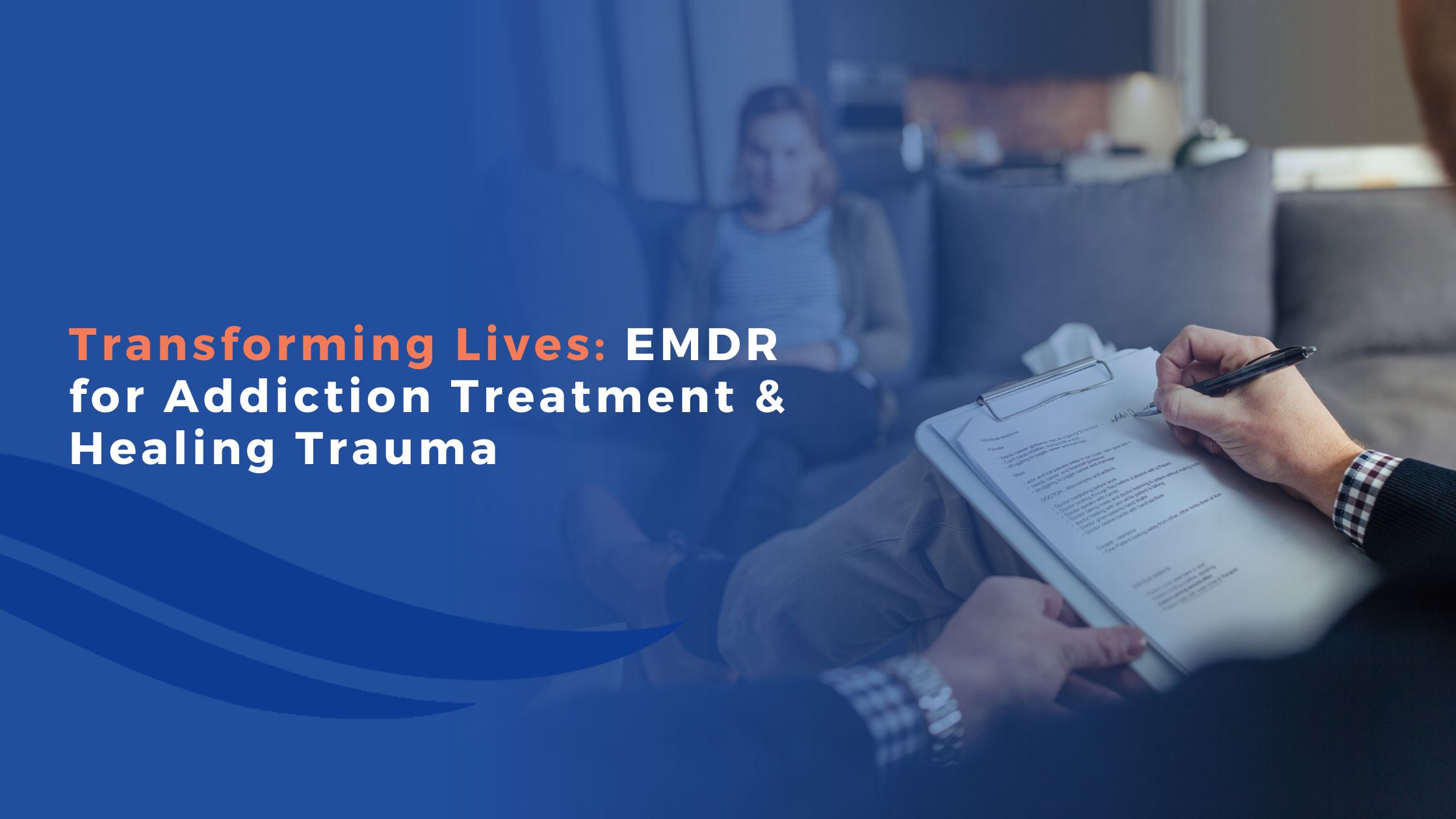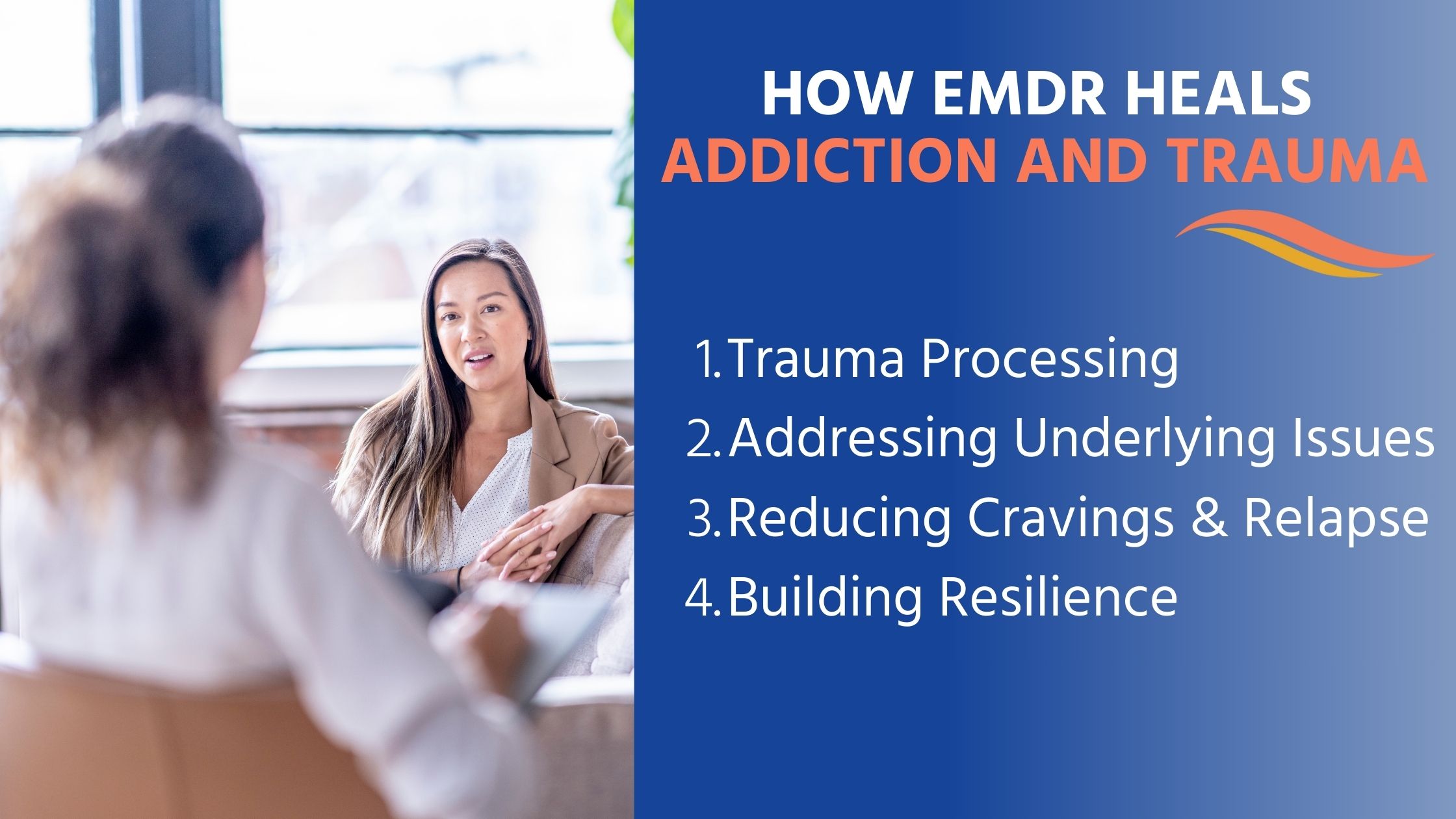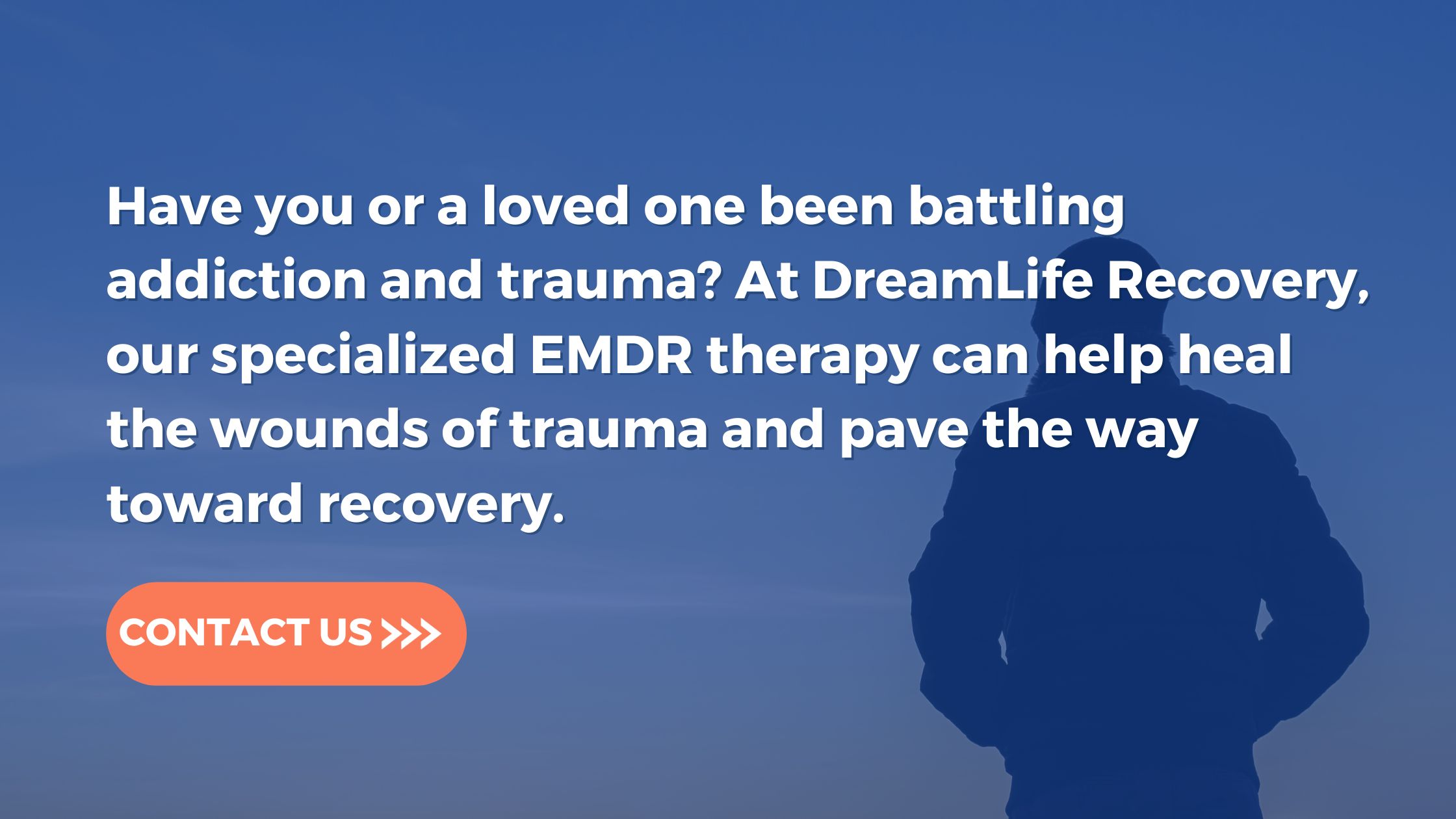EMDR for Addiction Treatment and Healing Trauma
November 15, 2023 - Clinical Report
Medically Reviewed by Mike Iwinski


Written By
Mike IwinskiAddiction is often a complex and deeply rooted issue, with trauma frequently playing a significant role in its development and persistence. Traditional addiction treatment approaches have evolved to recognize the importance of addressing underlying trauma.
One powerful therapy gaining prominence in this context is Eye Movement Desensitization and Reprocessing (EMDR). In this article, we’ll explore how EMDR is being utilized to help individuals break free from the cycle of addiction by addressing the trauma that underlies it.
Understanding Trauma and Addiction
Before delving into the role of EMDR, it’s crucial to grasp the connection between trauma and addiction. Trauma can take various forms, such as childhood abuse, neglect, accidents, or witnessing distressing events.
When individuals experience trauma, it can leave emotional wounds that may lead to addiction as a coping mechanism. Drugs or alcohol can temporarily numb the pain and distress, providing a sense of relief. However, this relief is short-lived and often leads to a vicious cycle of addiction.
The Role of EMDR for Addiction Treatment
EMDR is an evidence-based psychotherapy approach developed by Francine Shapiro in the late 1980s. Initially designed to treat post-traumatic stress disorder (PTSD), EMDR has since been adapted for various mental health issues, including addiction.
Potential candidates for EMDR therapy are often identified early in the assessment and intake process. This initial screening helps identify clients who may have a history of trauma or emotional triggers contributing to their substance use.
However, it’s crucial to emphasize that the treatment process is client-centered, and individuals proceed at their own pace. Clients are empowered to engage in EMDR therapy when they feel ready and comfortable, ensuring a safe and supportive environment for addressing their underlying issues.
This approach respects each client’s unique journey to recovery, fostering a more effective and individualized treatment experience.
EMDR at DreamLife Recovery
At DreamLife Recovery we may utilize Eye Movement Desensitization and Reprocessing (EMDR) as a therapeutic approach to help clients address underlying trauma or emotional issues that contribute to their substance use.
During EMDR sessions, trained therapists guide clients through a structured process involving bilateral stimulation, often in the form of eye movements, to process and desensitize traumatic memories or emotional triggers associated with addiction.
By integrating EMDR into treatment, DreamLife aims to reduce the psychological distress that can lead to substance use, helping clients to better cope with their past traumas and work towards lasting recovery.
How EMDR Heals Addiction and Trauma
1. Trauma Processing:
EMDR aims to help individuals process traumatic memories and experiences. It does this by facilitating the brain’s natural healing process through bilateral stimulation. This is typically achieved through side-to-side eye movements. It helps patients reprocess traumatic memories, reducing their emotional charge.
2. Addressing Underlying Issues:
In addiction treatment, EMDR is used to identify and target the specific traumatic events or triggers that contribute to substance use. By addressing these underlying issues, individuals can develop healthier coping mechanisms and reduce their reliance on drugs or alcohol
3. Reducing Cravings and Relapse:
EMDR has shown promise in reducing cravings and preventing relapse. By working through the emotional pain and distress associated with trauma, patients are less likely to turn to substances as a means of escape.
4. Building Resilience:
EMDR helps individuals build resilience by processing and desensitizing traumatic memories. This enables them to confront their past trauma without being overwhelmed by it, ultimately promoting emotional healing.

The EMDR Process in Addiction Treatment
EMDR typically involves the following phases:
1. History-Taking:
The therapist gathers a comprehensive history to identify trauma-related triggers and addiction patterns.
2. Preparation:
The patient learns coping skills to manage distressing emotions that may arise during EMDR sessions.
3. Desensitization:
This is the core phase of EMDR, during which the patient focuses on specific traumatic memories while engaging in bilateral stimulation (usually by following the therapist’s fingers or a moving light).
This process allows the patient to reprocess the trauma in a safe and controlled environment.
4. Installation:
Positive beliefs and self-esteem are reinforced to replace negative self-perceptions stemming from trauma.
5. Body Scan:
The therapist helps the patient identify and address any residual physical tension or discomfort associated with the traumatic memory.
6. Closure:
The therapist ensures that the patient is emotionally stable before ending the session.
7. Reevaluation:
In subsequent sessions, the therapist and patient assess progress and address any lingering issues.
The Future of EMDR for Addiction Treatment
EMDR for addiction treatment has yielded impressive results for many individuals struggling with substance use disorders and underlying trauma. Success stories abound, demonstrating that addressing trauma through EMDR can be a pivotal step in the journey to recovery.
As research and awareness grow, the integration of EMDR into addiction treatment programs offers hope for a more comprehensive and effective approach to overcoming addiction.
By acknowledging the deep-seated connection between trauma and addiction and utilizing therapies like EMDR, we can provide individuals with the tools and support they need to break free from the cycle of addiction and embark on a path of recovery.
Get EMDR Treatment Today
Have you or a loved one been battling addiction and trauma? At DreamLife Recovery, our specialized EMDR therapy can help heal the wounds of trauma and pave the way toward recovery.
This unique treatment method has proven effective in overcoming addiction, transforming lives, and offering a fresh start. Don’t let trauma and addiction hold you back any longer. It’s time to reclaim your life and embrace the healing power of EMDR therapy.
Ready to start your journey to recovery? We are here to support you every step of the way. Call us today at (855) 384-5808, or fill out our contact form to learn more about how EMDR can transform your life.








